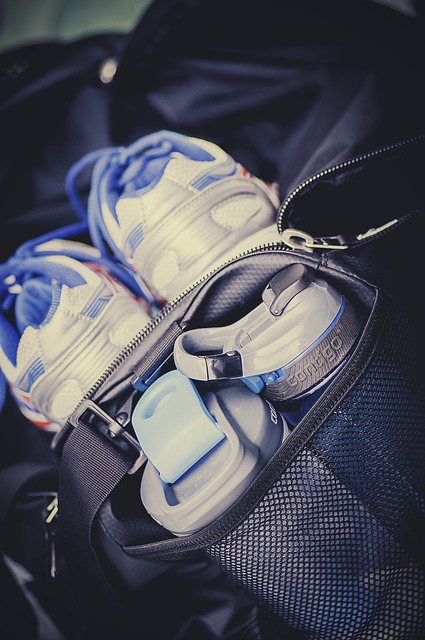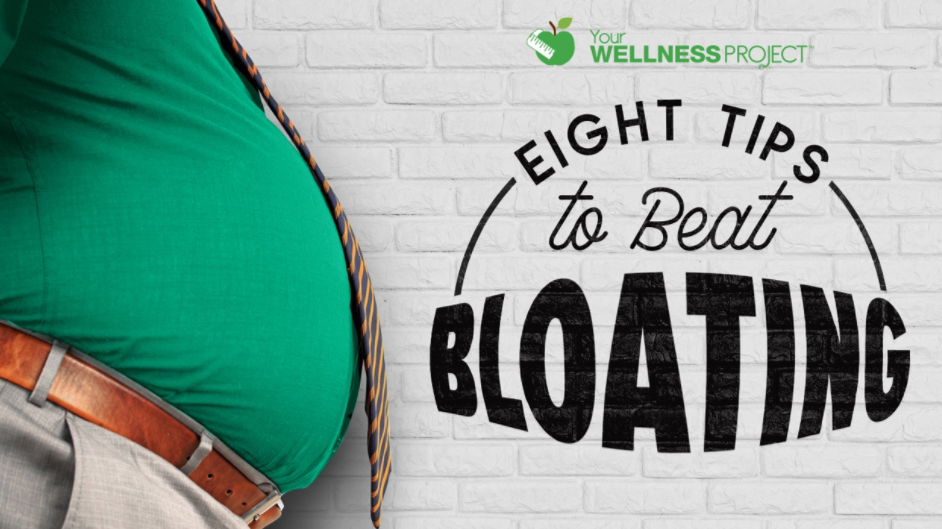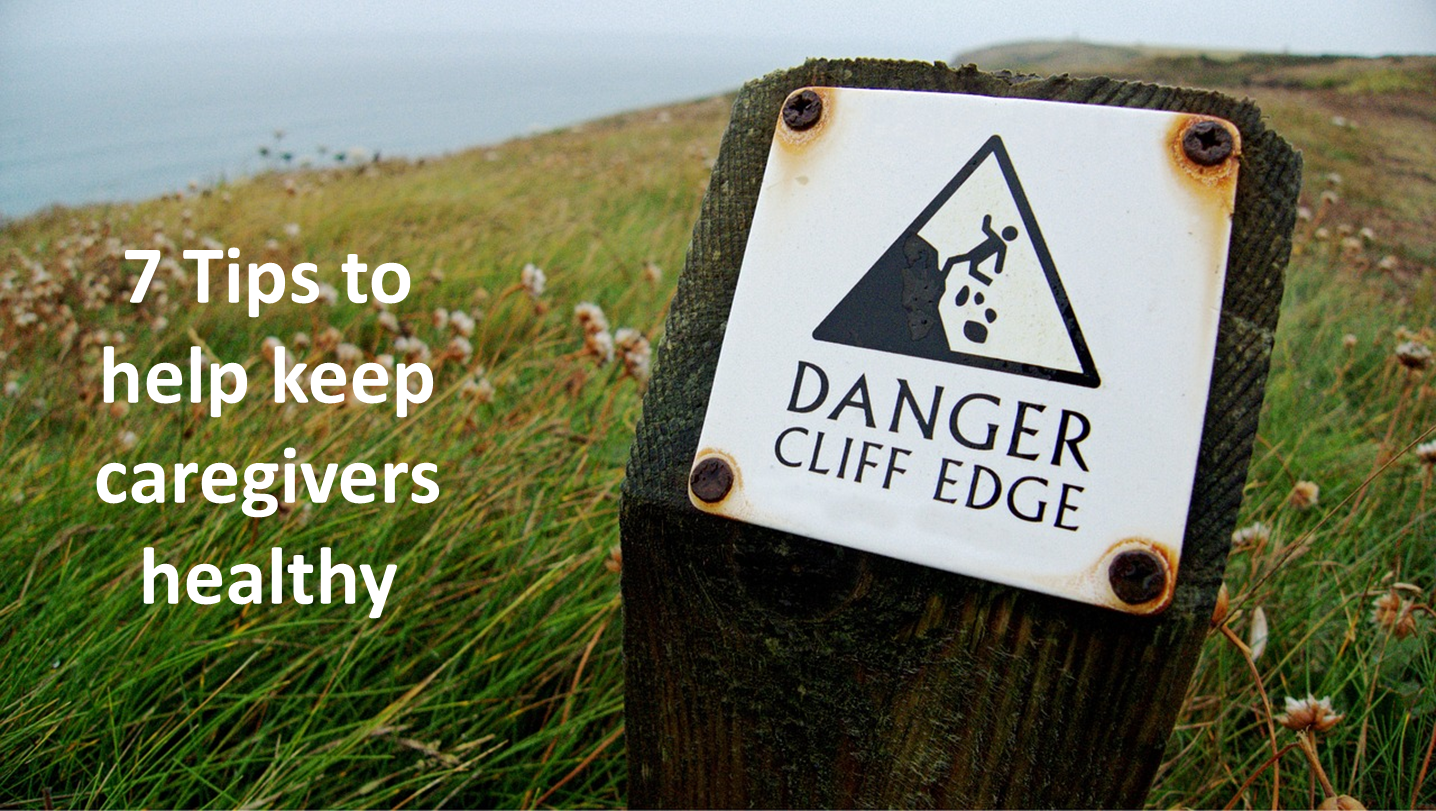7 Tips to keep caregivers healthy
Category: Caregivers

Recently everywhere I turn, I’m seeing or hearing about people who are being thrust or drawn into the role of caregivers.
That in itself is probably a good reason to dig into this topic but also I personally experienced having an active role as a caregiver for about 7 years with my young adult daughter experiencing complications from Juvenile Diabetes (Type 1).
Defining a caregiver:
According to Oxford Dictionaries – the definition of caregiver is a family member or paid helper who regularly looks after a child or a sick, elderly , or disabled person.
Here are a few statistics from the CDC 2009 fact sheet about caregivers. I know it’s a long article but I was personally amazed at how massive the group of caregivers is! After reading this I decided that my goal in writing this would be to raise awareness to keep more caregivers from “going off the cliff” in their caregiver journey. I’ve included quite a few statistics so if you want to get right to the tips then just scroll down!
https://www.cdc.gov/aging/caregiving/facts.htm
- More than 34 million unpaid caregivers provide care to someone age 18 and older who is ill or has a disability (AARP, 2008).
- An estimated 21% of households in the United States are impacted by caregiving responsibilities (NAC, 2004).
- Unpaid caregivers provide an estimated 90% of the long-term care (IOM, 2008).
- The majority (83%) are family caregivers—unpaid persons such as family members, friends, and neighbors of all ages who are providing care for a relative (FCA, 2005)
- The typical caregiver is a 46 year old woman with some college experience and provides more than 20 hours of care each week to her mother (NAC, 2004).
- The out-of-pocket costs for caregivers who are caring for someone who was age 50 or older averaged $5,531 in 2007. About 37% of caregivers for someone age 50 and older reduced their work hours or quit their job in 2007 (AARP, 2008).
- Caregivers report having difficulty finding time for one’s self (35%), managing emotional and physical stress (29%), and balancing work and family responsibilities (29%) (NAC, 2004).
- About 73% of surveyed caregivers said praying helps them cope with caregiving stress, 61% said that they talk with or seek advice from friends or relatives, and 44% read about caregiving in books or other materials (NAC, 2004).
- About 30% said they need help keeping the person they care for safe and 27% would like to find easy activities to do with the person they care for (NAC, 2004).
- Half (53%) of caregivers who said their health had gotten worse due to caregiving also said the decline in their health has affected their ability to provide care (NAC, 2006).
- Caregivers said they do not go to the doctor because they put their family’s needs first (67% said that is a major reason), or they put the care recipient’s needs over their own (57%). More than half (51%) said they do not have time to take care of themselves and almost half (49%) said they are too tired to do so (NAC, 2004).
In an additional 2016 CDC article on this topic , It states that “informal or unpaid caregiving has been associated with:

- Elevated levels of depression and anxiety
- Higher use of psychoactive medications
- Worse self-reported physical health
- Compromised immune function
- Increased risk of early death
Over half (53%) of caregivers indicate that a decline in their health compromises their ability to provide care.
Furthermore, caregivers and their families often experience economic hardships through lost wages and additional medical expenses. In 2009, more than one in four (27%) of caregivers of adults reported a moderate to high degree of financial hardship as a result of caregiving.”
What does caring for yourself look like when you feel like a scarecrow that’s getting it’s arms and legs and hair pulled in every direction?
Tip #1 Find ways to calm yourself

As listed above, many found that praying helped them with this. I personally love the Psalms and found I could carry a small pocket bible. If you have a smart phone or tablet, put an app on it so you can have it handy.
It can also help you feel calmer if you pay attention to your breath. Sometimes I would find myself taking very fast but short breaths. I found a Yoga class and realized just how shallow my breathing was. I started focusing on breathing slower and drawing that breath deeper.
Eventually I could get it to go down to my belly and could use that long deep breath to calm me wherever I was. As you learn new things, be gentle with yourself as most of our old patterns have been with us a long time.
Listening to music can also be very calming . It can also help the person your caring for to be calmer. I did a search on You Tube for music for calmness and Christian music for calmness and many results came back so you can decided what style of music moves you. One of the albums I love is by Olivia Newton-John called “Grace and Gratitude”
If you a have a person that can give you good guidance or support, let them.
Tip #2 Eat Healthy

I hear many tell me that doing that is a joke when things are crazy and I can honestly say that at times I got caught with mostly unhealthy options. I did realize though that I couldn’t make that a regular pattern or my health would suffer. I would not be able to help the person whose care I was involved in and also still manage the responsibilities that still awaited when I came back to my home.

Many days I started my day with a Smoothee. I made sure that it contained a good amount of plant based protein, fiber and along with that I took supplements (vitamins).
In order to get enough protein throughout the day, aim for protein at each of your 3 meals.
- Try to include plant proteins, such as beans, lentils and other legumes, and soy foods such as tofu.
- Meat, poultry, fish, dry beans, peas, eggs, nuts and seeds also provide protein, vitamins B and E, iron, zinc and magnesium
Even when life is normal, we’re eating a lot of calories, but not getting the nutrition that our bodies need to operate in a healthy way. According to the National Health and Nutrition Examination Survey, 9 out of 10 Americans fall short on essential nutrients in their diets.
Personally, I started having a purse like bag ready that contained several bottles of water, some Meal Bars and Snack Bars, small baggies with nuts (I like almonds, walnuts and cashews). Also, having some vegetables cut up in the refrigerator so you can quickly grab them on go. Later on, I also heard about the suggestion of ” a salad in a jar”. Decide on size jar you want, place small amount of dressing in the bottom , then layer a nice colorful variety of vegetables that you like. Make enough for a few days so it’s available when you need it.
Tip #3 Stress is a nutrient gobbler
Most importantly, nourish the adrenal glands. Stress depletes the body of specific nutrients and causes hormonal and metabolic changes and imbalances. Like a person running a race depletes his or her body of water and minerals after the run, a person under constant stress will deplete their adrenal glands of their much-needed nutrients like vitamin C, B, zinc, & selenium.
Before you run right out and look to purchase these nutrients separately, I encourage you to consider starting with a well balanced, science based multi-vitamin.
To help you with that search, here’s the link to an E-book where you can learn what to look for. LEARN HOW TO CHOOSE A HIGH QUALITY FOOD SUPPLEMENT
There are other herbs such as ashwagandha, cordyceps, and ginseng that are known to support and strengthen the adrenal glands and help your body adapt better to stress.
When I do need some extra help beyond the essential nutrients, one of my favorites is: Stress Relief Complex
Natural stress relief you can safely take every day*

Tip #4 Exercise
Even a little is better than none! I walked around the perimeter of the hospital my daughter was in many times just to keep moving. Or sometimes, I’d ride my stationery bike for 10-15 minutes – it can all help. Put on those lace-up shoes to make you feel more like moving!
If there are children around, put on some music and dance around to burn off some of that negative energy. Find any way you can to have fun and smile.
Tip #5 Sleep

Make it a point to get your rest. It can be hard to settle down when things are demanding or crazy but make an effort to do it. I’ve found that there is music and apps with “white noise” or “ocean sounds” that you can listen to that may help you drift off and recharge.
I also made my bed in the morning most days because it felt much better not to come home to that unmade bed.
Tip #6 Delegate some of the things that you can.

I remember coming home one day (the person I was caring for was not in our home) and not wanting to come in because it was late, I was tired and I knew my home was chaotic.
I told my husband I wanted to hire someone to clean my house. He’s a private person and at the time he was still working more that 40 hours a week but he did ask how he could help. We ended up dividing some of the chores up and it helped immensely.
Tip #7 Expert tips on organization can help
 Also, I started looking for ways to be more orderly on my part. I found a website called “TheFlylady.net” and found it helpful. I read a book by Marla Cilley called “Sink Reflections.” It gave me lots of tips to start conquering some of the chaos. She call the tips baby steps and encourages you to accept yourself where you are. I’ve had to do that over and over more times than I care to admit.
Also, I started looking for ways to be more orderly on my part. I found a website called “TheFlylady.net” and found it helpful. I read a book by Marla Cilley called “Sink Reflections.” It gave me lots of tips to start conquering some of the chaos. She call the tips baby steps and encourages you to accept yourself where you are. I’ve had to do that over and over more times than I care to admit.
It is my hearts desire to pass on the many blessings that I have received. I’ve been able to do that in my work as a health coach with a nutrition and online business focus.
You can click here to learn more about me.
I’ll look to your comments or tips that you can add to help others who read this in their caregiver journey.
Hopefully together we can help many back away from the edge of the cliff!
Warmly,
Pat
P.S. Thanks to pixabay.com for some of the photos I’ve included here!






Facebook Comments